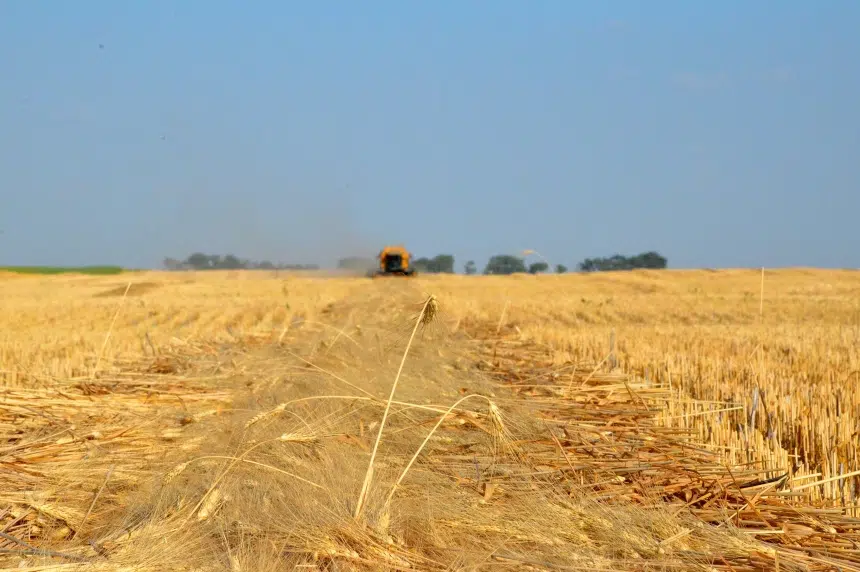Harvest has begun in Saskatchewan, with this week’s crop report showing three per cent of the crop now combined.
This is well ahead of the five-year average of one per cent harvested by this time of year, with another three per cent of provincial crops ready to combine.
With the heat rapidly drying out crops, it is expected that this year’s harvest numbers will quickly rise, in spite of the minimal rainfall throughout the province this week and over the past month.
Combine and field fires have been a risk due to extremely dry conditions of fields and harvested plant material, requiring extra attention on the part of producers as they complete harvest activities.
The Macklin area is reported to have received the most rainfall this week with 18 millimetres. The Marquis area received 16 mm, the Cabri area 14mm and the Allan area had 11 mm of rain. Many areas, however, saw no precipitation this week.
Recent rains will have little effect on this year’s crop but is expected to improve soil moisture into the fall and next year.
This July was the third warmest and eighth driest in Saskatoon, according to Environment Canada. It was also the driest July on record for North Battleford.
As a result of the minimal rain and high temperatures, there has been a reduction in provincial topsoil moisture — cropland topsoil moisture is rated as three per cent adequate, 31 per cent short and 66 per cent very short. Hay and pasture land topsoil moisture is two per cent adequate, 25 per cent short and 73 per cent very short.
The weather conditions have led to reduced pasture growth in many areas, with pasture conditions in the province rated as 19 per cent fair, 35 per cent poor and 46 per cent very poor.
Heat, drought stress and wind were the cause of most crop damage seen this week, with some areas of the province experiencing hail storms of various intensity and duration that caused some minor damage.
Grasshoppers remain an issue in many areas of the province with producers unable to deal with them owing to the start of harvest.
Farmers reportedly hope to get the crop off before much more damage is done.
Producers are wrapping up their haying operations and occupied with hauling water to cattle on pasture as well as other harvest operations.
The Farm Stress Line is available for support to producers in the province as a confidential service that is available at all times. Any producers seeking support during this time can call 1-800-667-4442. Calls made to this number are answered by the non-profit, community-based agency Mobile Crisis Services Regina and there is no call display.







